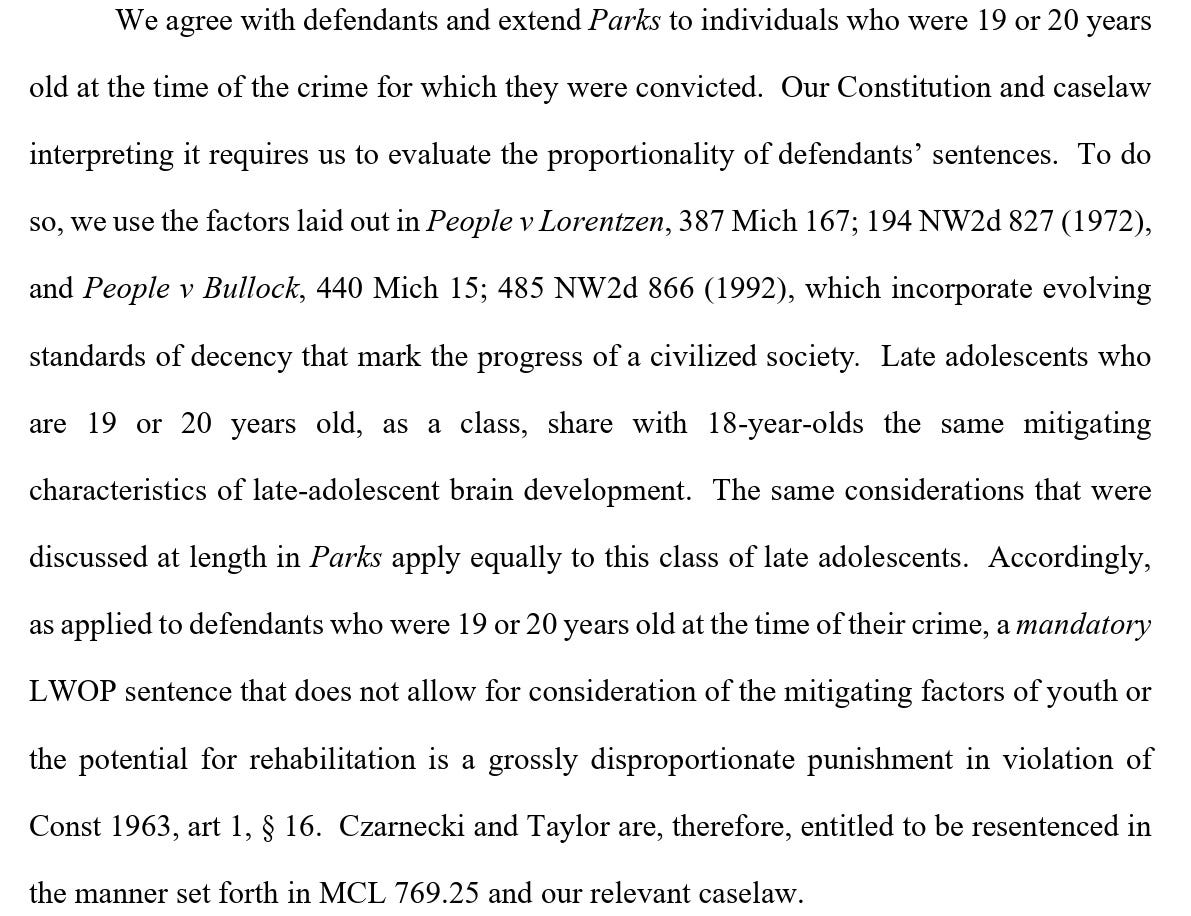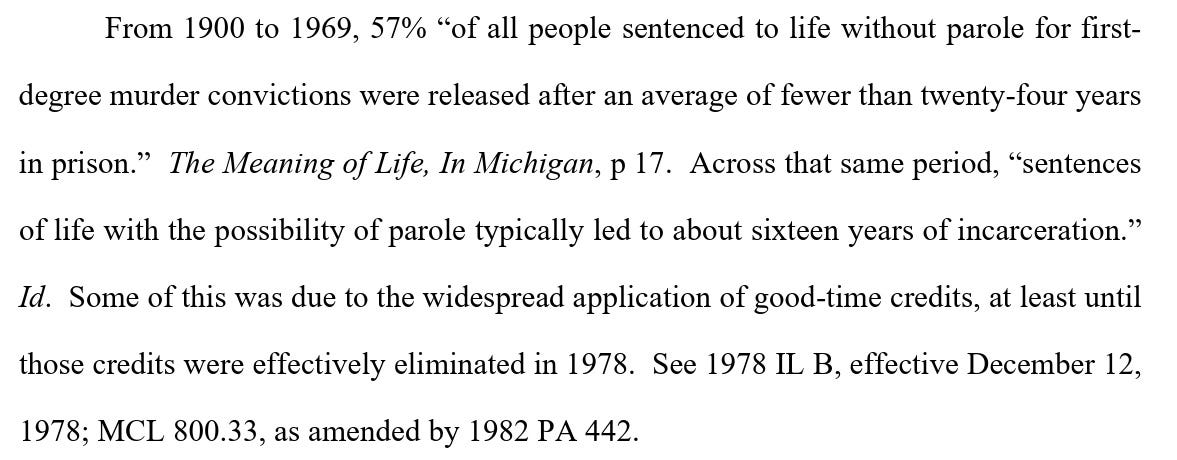In 2022, the Michigan Supreme Court held that imposing mandatory life without parole sentences on 18-year-olds—without considering how youthful characteristics affected their conduct or their capacity to change—is unlawful “cruel or unusual” punishment under Michigan’s state constitution. Today the court extended that rule to anyone under age 21, a decision that not only changes sentencing policy going forward, but gives the nearly 600 people serving this unlawful sentence a chance at release:

Michigan is now the third state to recognize broader state constitutional rights against excessive and unnecessary prison terms for emerging adults (or “late adolescents”) over age 18. In 2021, the Washington Supreme Court likewise held that mandatory LWOP for anyone under 21 is “cruel” punishment, while last year the Massachusetts Supreme Judicial Court went further and banned all LWOP sentences (even those imposed at the discretion of a trial judge) for this age group. And while the Michigan Supreme Court left open the possibility of imposing life without parole after an individualized sentencing hearing, it has also recognized a presumption against such sentences with the burden placed on prosecutors to rebut it.
A few initial notes on today’s opinion, which comes in the cases People v. Taylor and People v. Czarnecki:
First, the court relied heavily on the undisputed (and growing) body of neurological research showing that brain development typically continues until about age 25, and found that, “as a class, 19- and 20-year-old late adolescents are more similar to juveniles in neurological terms than they are to older adults.” This means that they share the reduced capability and greater capacity to grow and change that state and federal courts have long-recognized in youth. It also means that courts should go further. Indeed, Justice Richard Bernstein concurred to say that, instead of drawing a bright-line rule at age 21, he “would … follow the consensus of the relevant scientific studies and draw such a line at age 25.”
Second, the court invoked historical practice in Michigan to explain that life imprisonment is a relatively recent innovation that conflicts with the state’s long constitutional tradition of promoting rehabilitation. Echoing an argument raised in a amicus brief from SLRI and the MacArthur Justice Center, the court observed that, throughout much of the 20th century, even people with a formal “life without parole” sentence retained a meaningful chance to demonstrate reform and secure release, either through parole, commutation, or those mechanisms working in tandem:

This argument is not limited to Michigan. As Prof. Chris Seeds documents in his book Death By Prison, the routine use of true life without parole sentences in the United States is a modern phenomenon. As other state courts define “cruelty” and “unusualness” within their own state constitutions, they should consider how the recent proliferation of extreme prison sentences comports with historical practice and constitutional understanding in their own states.
Finally, while the court did not explicitly consider racial discrimination, this decision has enormous implications for racial justice. Michigan’s mandatory life without parole sentencing scheme produces massive racial disparities: Black people comprise just 14% of Michigan’s overall population, but 68% of those serving LWOP. The disparities are even worse for young adults. Among those serving LWOP for offenses committed at age 19 or 20, 76% are Black. As amici Fair & Just Prosecution argued, this “data suggests deep systemic racism and a sentencing scheme that is fundamentally based on discrimination, not culpability.”
For more on the Michigan Supreme Court’s “cruel or unusual” jurisprudence, see previous newsletter coverage here, and read SLRI’s amicus brief in Taylor and Czarnecki here.